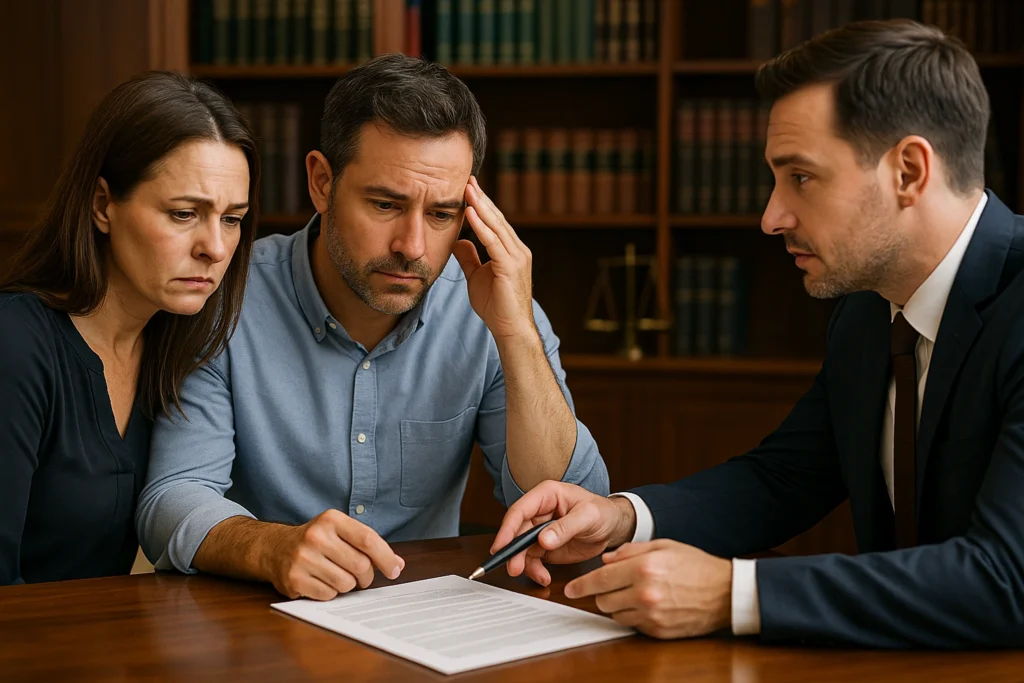
Plea bargaining in Texas plays a huge role in how criminal cases get resolved. Most never reach trial. Instead, defendants and prosecutors strike deals that can reduce charges, shorten sentences, or drop additional counts. These agreements may speed up the process, but they also come with trade-offs. A single decision can affect your record, your freedom, and your future. Knowing how plea deals work helps you avoid costly mistakes.
What Is a Plea Bargain?
A plea bargain is an agreement between the prosecution and the defense. The defendant agrees to plead guilty or no contest. In exchange, the prosecutor may reduce the charge, recommend a lighter sentence, or drop other charges.
Judges must approve all plea agreements, but they usually follow the recommendation unless it clearly goes against the law or public interest.
In Texas, plea bargaining happens in misdemeanors and felonies alike. Some deals happen early in the process, while others occur just before a trial begins.
Types of Plea Bargains in Texas
Plea deals come in different forms. The type offered depends on the case facts, criminal history, and how much evidence the state has.
1. Charge Bargaining
This involves reducing the charge to a lesser offense. For example, a felony assault charge might get reduced to a misdemeanor if the case has weak points or if the defendant has no prior convictions.
2. Sentence Bargaining
Here, the defendant pleads to the original charge but receives a lighter sentence. This could mean less jail time, probation, or avoiding certain fines or penalties.
3. Count Bargaining
If the defendant faces multiple charges, prosecutors may agree to drop some if the defendant pleads guilty to one or two.
4. Deferred Adjudication
In some cases, especially with first-time offenders, the court may place the defendant on probation without a final conviction. If the person successfully completes probation, they avoid a permanent conviction on their record.
Why Prosecutors Offer Plea Deals
Prosecutors in Texas often face packed dockets. Trials take time, and not all cases have strong enough evidence to win a conviction. Plea bargains let them close cases quickly while still holding people accountable.
A plea deal guarantees a result. Trials carry risk. Even strong cases can lose in front of a jury. With a plea, prosecutors avoid that uncertainty.
Prosecutors may also offer deals to protect victims from testifying, especially in sensitive cases like domestic violence or assault.

Why Defendants Accept Plea Deals
Facing trial can be scary, expensive, and unpredictable. Plea bargains give defendants some control over the outcome. By pleading guilty to a reduced charge, they may avoid the worst-case scenario.
Benefits of accepting a plea include:
- Shorter sentence
- Reduced or dismissed charges
- Avoiding public trial
- Possibly avoiding jail time altogether
Some defendants accept a plea even if they maintain their innocence, just to avoid the risk of a harsher sentence.
The Plea Bargaining Process in Texas
Plea deals follow a standard process across Texas courts. Still, each county may have different policies or timelines.
1. Initial Offer
After filing charges, the prosecutor usually reviews the case and makes an offer. Defense attorneys may meet with prosecutors to negotiate better terms. Offers can come early or later, depending on the case.
2. Review and Negotiation
Defense lawyers review the evidence, speak with their clients, and compare the offer to the risks of going to trial. They may push for better terms or bring mitigating facts to the prosecutor’s attention.
3. Agreement Reached
Once both sides agree on the terms, the defendant signs written documents that outline the plea. These forms include:
- The charge(s)
- The agreed punishment
- Waiver of trial rights
- A statement that the plea is voluntary
4. Plea Hearing
The court schedules a hearing. The judge questions the defendant to make sure they understand the plea and aren’t being pressured. The judge may ask:
- Do you understand the charges and penalties?
- Are you entering this plea freely?
- Do you understand you’re giving up your right to trial?
If the judge finds the plea valid, they accept it and sentence the defendant based on the agreement.

Can Judges Reject Plea Agreements?
Yes. Judges have the final say in Texas criminal cases. If the plea terms seem too lenient or don’t follow legal standards, the judge can reject the deal. When this happens, the defendant can withdraw the plea and prepare for trial—or renegotiate with the prosecutor.
Judges rarely reject agreed pleas, but it does happen in serious or high-profile cases.
What Happens After a Guilty Plea?
Once the court accepts a plea, the sentence begins. Depending on the case, this could mean:
- Serving jail or prison time
- Reporting to probation
- Paying fines or restitution
- Attending treatment programs
Some defendants qualify for deferred adjudication or probation, which avoids jail time and in some cases, keeps a conviction off their record if they complete conditions successfully.
Can You Appeal After Accepting a Plea Deal?
In most cases, no. A guilty plea usually waives your right to appeal. There are few exceptions:
- If the plea was not voluntary
- If the court gave the wrong sentence
- If the prosecutor violated the agreement
That’s why it’s important to fully understand the plea terms before signing. Judges ask questions at the plea hearing to confirm that the defendant understands they’re giving up appeal rights.
Is Plea Bargaining Always a Good Idea?
Not always. Some people take plea deals out of fear or pressure without understanding the consequences. Others accept deals that sound good but carry long-term penalties.
For example:
- Pleading guilty may affect immigration status
- Some convictions stay on your record and limit job options
- Deferred adjudication doesn’t mean automatic expungement
A plea can close a case, but it still counts as a legal decision with lasting impact.
How to Protect Yourself During Plea Talks
If you face criminal charges in Texas, talk to a defense lawyer before agreeing to any deal. The prosecutor represents the state—not you. Only your attorney can explain the risks, help negotiate better terms, and guide you through the process.
Ask your lawyer:
- Will this affect my record?
- Is this deal better than my chance at trial?
- Can this charge affect housing, employment, or immigration?
- What happens if I break probation?
Good advice early in the process can make the difference between a clean resolution and years of regret.
Final Thoughts
Plea bargaining plays a major role in Texas criminal cases. It moves cases forward, avoids long trials, and gives defendants a chance to reduce their penalties. But it’s not a decision to take lightly.
Understand your charges. Know your rights. Ask the right questions before agreeing to anything. A plea deal can bring relief—but only if it truly serves your best interests.
Other Related Articles
- What Is a White-Collar Crime in Texas?
- Criminal Homicide: And All it Entails
- The Criminal Process Guide
- The Different Types of Criminal Trials
- What to Look for in a Criminal Defense Lawyer in Texas
- Criminal Offense or Case Dismissal??
- How Much Does it Cost to Hire a Criminal Defense Attorney?
- Winning custody of your child with a criminal conviction
- Arson In Texas
- Andrew Tate’s criminal law saga continues
- Punishment Range for Crimes in Texas?
- Criminal Offense or Case Dismissal??
- The Consequences of Drug Trafficking in Texas
- Texas Drug Offenses
FAQs about Plea Bargaining
Yes, plea bargaining is important to the criminal justice system. It allows for the efficient resolution of cases, reduces the burden on the court system, and provides a way to manage caseloads. Plea bargaining can also help in securing convictions and holding defendants accountable for their actions.
The pros of a plea bargain include reduced charges or sentences for defendants, certainty in case outcomes, reduced stress on defendants and their families, and the avoidance of collateral consequences. However, there are also cons, such as potential loss of certain rights, the stigma of a criminal record, and the possibility of feeling pressured to accept a deal that may not be in the defendant’s best interest.
The exact amount of money saved through plea bargaining varies depending on the specific case and jurisdiction. Plea bargaining helps save costs associated with lengthy trials, including expenses related to court proceedings, jury selection, witness fees, and the use of resources like forensic experts. Overall, plea bargaining can lead to significant cost savings for both the prosecution and the court system.
There are several reasons why an innocent person might consider taking a plea bargain. Factors such as the fear of a potentially harsher sentence if convicted at trial, limited access to resources for a robust defense, the stress and uncertainty of a trial, and the advice of defense attorneys who may recommend a plea bargain as the best option under the circumstances can all contribute to the decision.



